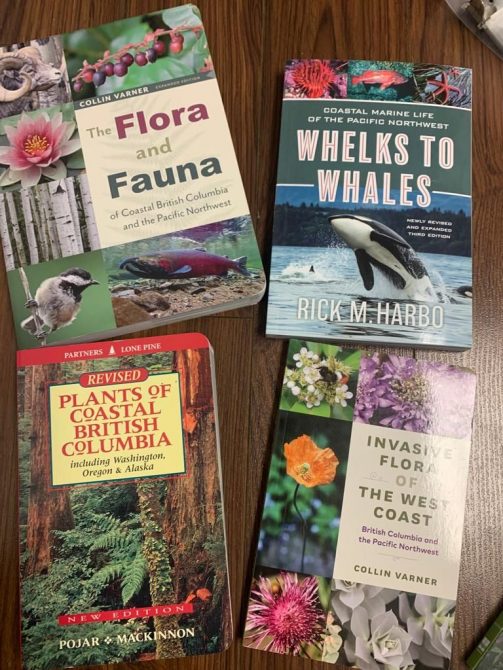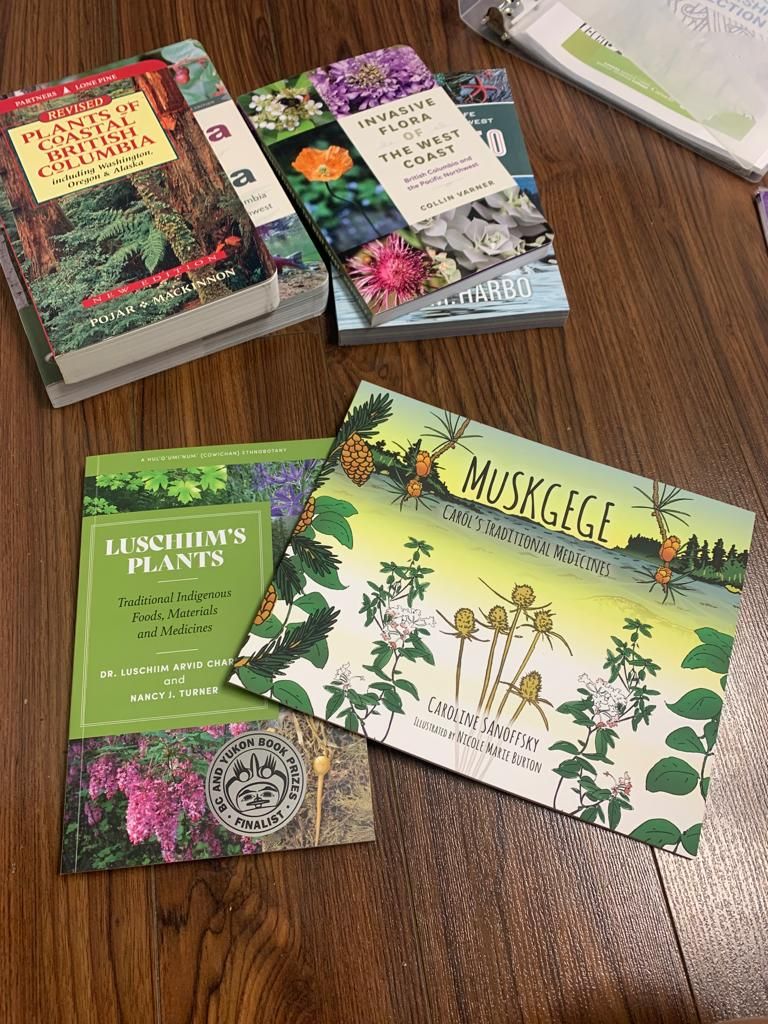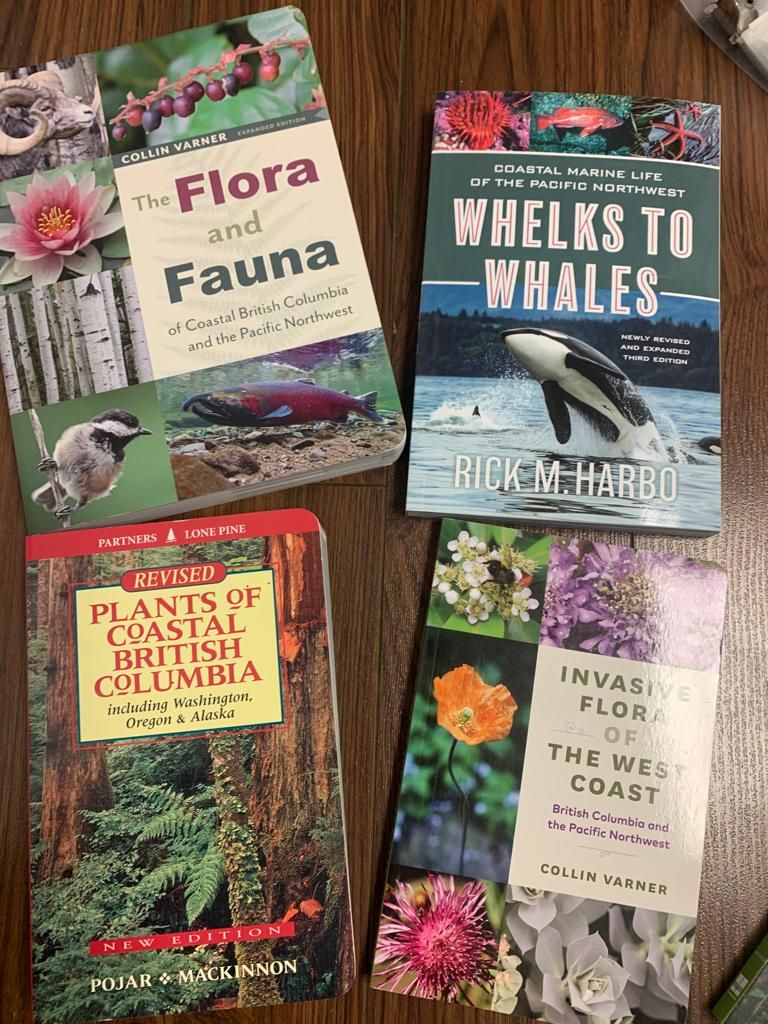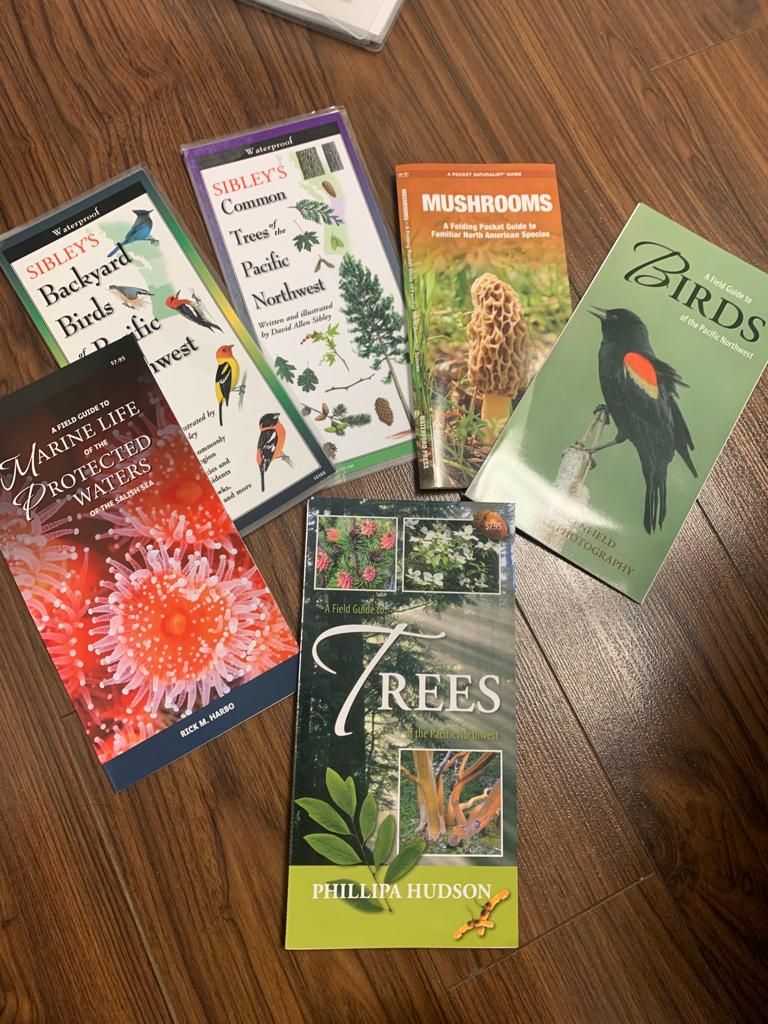Outdoor Leadership & Connection Kit

Project Details
Decolonizing outdoor education means confronting the separation of humans with nature and the outdoors. This kit’s purpose is to invite and ask people to find ways to connect themselves with nature by learning from the land, while also acknowledging their privilege. It also invites people to gather and connect as a community. The essential question: What happens to our community when we understand and connect the natural world to our lives? What happens when we acknowledge and bridge the nature gap?
Project Description
This Outdoor Leadership and Connection Kit is the result of an action project from participating in Ocean Wise’s youth program, Ocean Bridge (2023) and is made by Berlin Capalad. Here are her notes below:
I created the Outdoor Leadership and Connection Kit with the intention to bridge the “Nature Gap†and provide accessibility for young people to engage in these conversations and to experience outdoor education as a community.
I am a proud woman of colour, but I grew up without access to nature. My immigrant parents could not afford or have time to take me outdoors. In fact, I was the one who took my parents camping for their first time, only a few years ago. The “outdoor world†is not catered or advertised to people who look like me. As an outdoor educator, I work in a world where most of the time, I am the only one in that space.
In a workshop by Ocean Wise, guest speaker Dr. Jacqueline L. Scott described how “nature is not neutral†and encouraged our projects to address race and social justice issues in order to tackle environmental issues. She inspired the main purpose of my project, rooting it in decolonization. Dr. Scott’s workshop encouraged me to take up space, think bold and to prioritize the understanding of privilege and intersectionality.
The Outdoor Leadership and Connection Kit includes lessons and activities designed to connect people with nature and to build community. The lessons and discussions asks participants to observe the natural world, and find meaning and connection to themselves. The kit comes with guidebooks, cards, and guiding questions/prompts to host a group to explore outdoors in a meaningful way.
This is only the beginning of the journey of this kit, and the start of the conversation. I cannot wait to continue doing this work to provide young people the access to nature that I could not have, and to provide educators and opportunity to get messy and dive deep into connection with their communities.”
What was your biggest challenge?
The biggest challenge I faced was trying to fit so many revolving ideas to one concept and direction. It was hard to get my head straight when I wanted to tackle so many things at once. Once I settled on the concept of decolonization and focusing on connection, things started to fall into place.
In addition, it takes so much time and energy to create good discussion questions. I wanted to think of meaningful ways that everyone can engage with, and to think of the various age groups that might be using the kit. What I have so far is only the beginning!
What was your most valuable takeaway?
I think my biggest takeaway from this experience was to take it slow and to always go back to its purpose. At first I wanted to tackle a gigantic project with an abundance of choices but at the end, I ended up with one straightforward piece. I found this to be more meaningful and much more achievable. I think when we try to tackle environmental justice, we try to solve all the problems of climate change. But, it’s important to know how to pace ourselves and to focus on what we have the capacity to achieve. Once I maintained my focus, I could have fun with the project and get excited with what I was creating!



